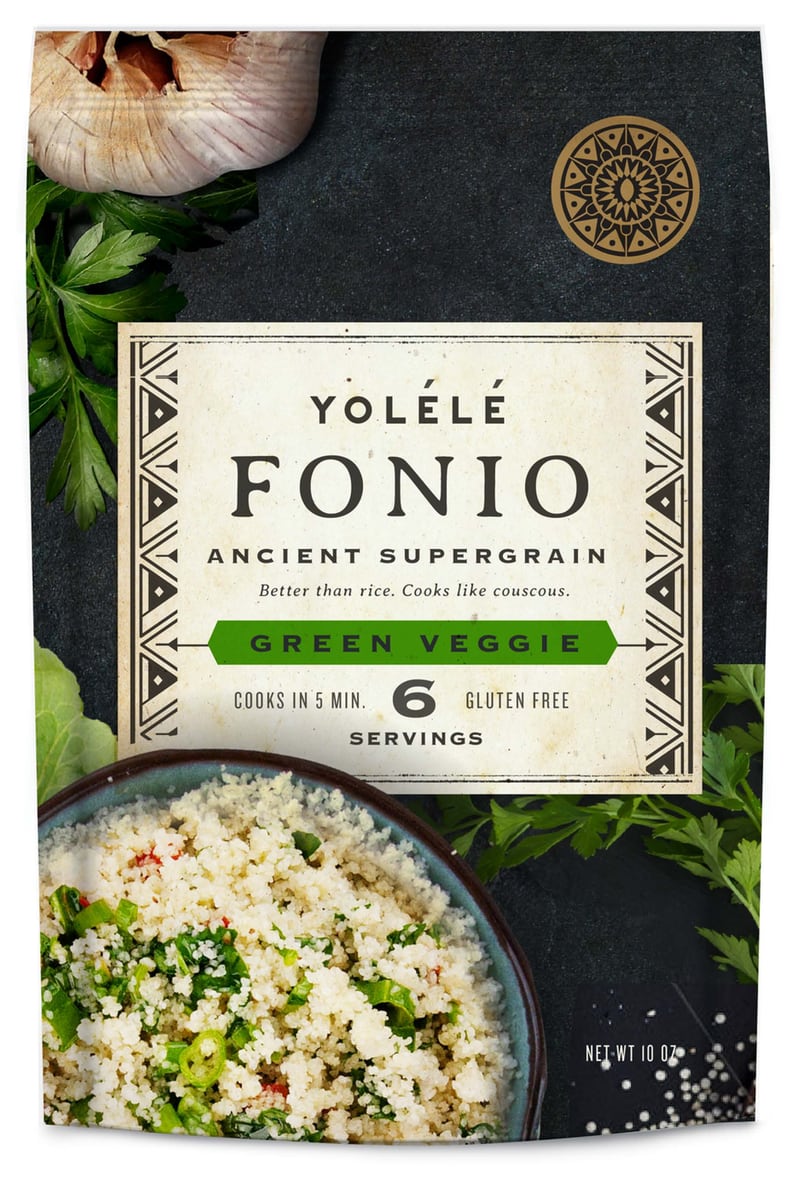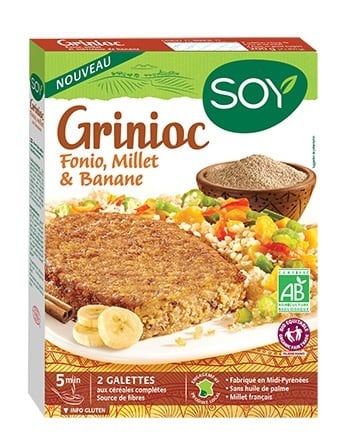Despite ticking all the right boxes needed to achieve ‘superfood status’, fonio is little known in the Western world, even among clued-in industry specialists or self-avowed foodies. But one company is aiming to bring this tiny grain into the spotlight.
Co-founded by Senegal-born, New York-based chef Pierre Thiam and Philip Teverow, a food industry veteran who was director of the Dean & DeLuca brand in the US for 13 years, Yolélé wants to create an export market for fonio and improve the lives of West African farmers who grow the crop.
Gluten-free, the grain has a neutral taste “like white rice”, and can be easily flavoured with other ingredients.
This makes it ideal for baked products such as bread, crackers and biscuits as well as pasta or even confectionery, said Teverow, and is stable in frozen, chilled or dry-mix products.
According to the most recent data from the statistics office of the United Nations’ Food and Agriculture Organisation (FAOSTAT), Guinea is by far the biggest producer of fonio, harvesting nearly half a million tonnes in 2014 (479,985 tonnes) in 2014. Nigeria produced around 82,000 tonnes, followed by Mali with 37,000 tonnes.
"In a consumer or restaurant kitchen, fonio is very easy to work with as an ingredient," Teverow told FoodNavigator. "It cooks super-fast, and the African expression ‘Fonio never embarrasses the cook’ is true. [However,] it has not really been used in an industrial setting before,” said Teverow.
“The protein composition is also notable: it is strong in methionine and cysteine, essential amino acids deficient in most cereal grains.”
Yolélé sells fonio for $5.99 (€5.10) for a 10 oz bag (around 280 g), which gives six servings. Fonio increases in volume dramatically when cooked and fluffed.
A reliable crop
According to Teverow, there is enough fonio supply to meet current demand – but not enough to meet the demand Yolélé is working to create.

In order to raise the profile of fonio, Thiam has spoken on Ted Talks, which sparked interest from India, South Africa - "where fonio is as foreign as it is to Americans", according to Teverow - Western Europe, Canada and the US.
The world is "hungry for new and exciting sources of nutrition" he said.
In order to ensure fonio does not join the ranks alongside cocoa, coffee and sugar as another African commodity that does not bring any wealth to those who grow it, Yolélé has partnered with NGO SOS Sahel to recruit, train, equip and organise smallholder farmers in West Africa.
“We are building a beneficial, identity-preserved supply chain centered on increasing income in rural West Africa by helping farmers grow fonio much more productively, and reducing their agricultural and post-harvest inputs,” said Teverow.
In this way, the crop can be part of “a resilient, organic agricultural system that combats desertification”.
“Fonio is a reliable crop. That’s why it’s been grown across West Africa for over 5,000 years despite how hard it is to turn it into food. Farmers count on it to feed their families when other food is in short supply.”
Overcoming the processing problems
Fonio has tiny grains – each seed is only slightly larger than a grain of sand – which makes husking and processing a tedious process. It takes around one to two hours to produce two kilograms of fonio by hand.
The small grain size means it can be difficult to ensure there are no grains of actual sand in a given batch, and so it must be rigorously washed to meet food quality standards.
The development of the GMBF fonio hulling machine means this laborious process can now be done at a fraction of the time although its cost (around CFA 900,000 or €1,300) remains prohibitive for smallholder farmers.
Scaling up supply
In order to scale up supply internationally – but also domestically where imported rice is often favoured instead of the native crop – Yolélé is raising the funds to open an industrial-scale fonio processing mill.

“Right now, the fonio supply chain is highly fragmented. The largest processors still use manual methods, and no processor could be certified as GFSI-compliant,” Teverow said. “[We] are working on establishing the world’s first commercial scale fonio mill."
Teverow said they want to work with "true impact investors".
"We’re targeting individuals driven to put their capital to use for good, and it would be great if they could make some more money while they’re at it."
The lack of an industrial-scale supply inevitably means that, for the moment, uptake by the processed food industry has been slow. Teverow said Kellogg has shown an interest in fonio “but only in theory”.
Mintel’s global product database shows just one product using the ingredient from French organic manufacturer Soy, which launched a fonio, millet and banana burger in 2015.
Soy sources its fonio from Burkina Faso through sustainable development NGO Orange Bleue Afrique which guarantees a fair income to farmers.
